Wrist Wraps vs Wrist Straps: Comparison, Pros & Cons
Author:
Unlock your full potential by engaging with our experts and community! Have questions about your fitness journey or looking for expert advice on weightlifting techniques? Don’t hesitate — leave a comment below and Oleksiy Torokhtiy will provide a personalized answer and insights to help you reach your goals.
Torokhtiy is reader-supported. Some links are affiliate links, and we may earn a commission at no extra cost to you. See our disclosure page for details.
Wrist wraps vs wrist straps is a strange debate within the lifting communities, as both accessories are designed to help with different aspects of your training. In this article, we will discuss when to use wrist wraps and straps, what they do and how both can be useful, depending on your training program.
The difference between wrist wraps and wrist straps is that wrist wraps are designed to support your wrist joint mainly during press exercises while straps to improve your grip abilities – strength and strength endurance – mainly during pull exercises.
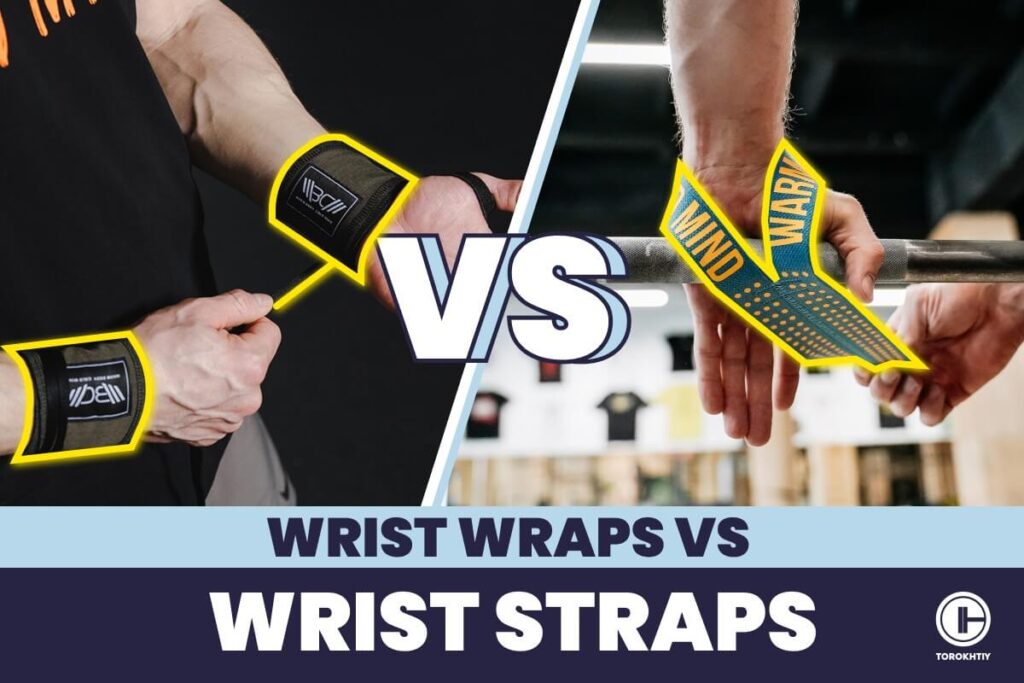
What Are Wrist Wraps?
Wrist wraps are typically used by weightlifters, Olympic weightlifters, and Strongmen who frequently train with heavy weight.
Their main function is to support and stabilize the wrist joints so that the chance of injuries is reduced. Using wrist wraps for weightlifting can be very helpful as they are an accessory that stabilizes the wrist and forearm and helps the hand remain stable, even when lifting a lot of weight.
When and Why Do You Need Wrist Wraps?
The main function of wrist wraps is to stabilize the wrist and help prevent possible injuries when lifting heavy weights. Knowing this, we can safely conclude that wrist wraps should be worn only on heavy lifting days when you’re performing pressing exercises such as snatch, jerk, overhead or bench press.
A good tip is to use wrist wraps only when you’re going above 80% of your one-rep max or when you’re going through a whole session that requires you to lift close to your maximum constantly.
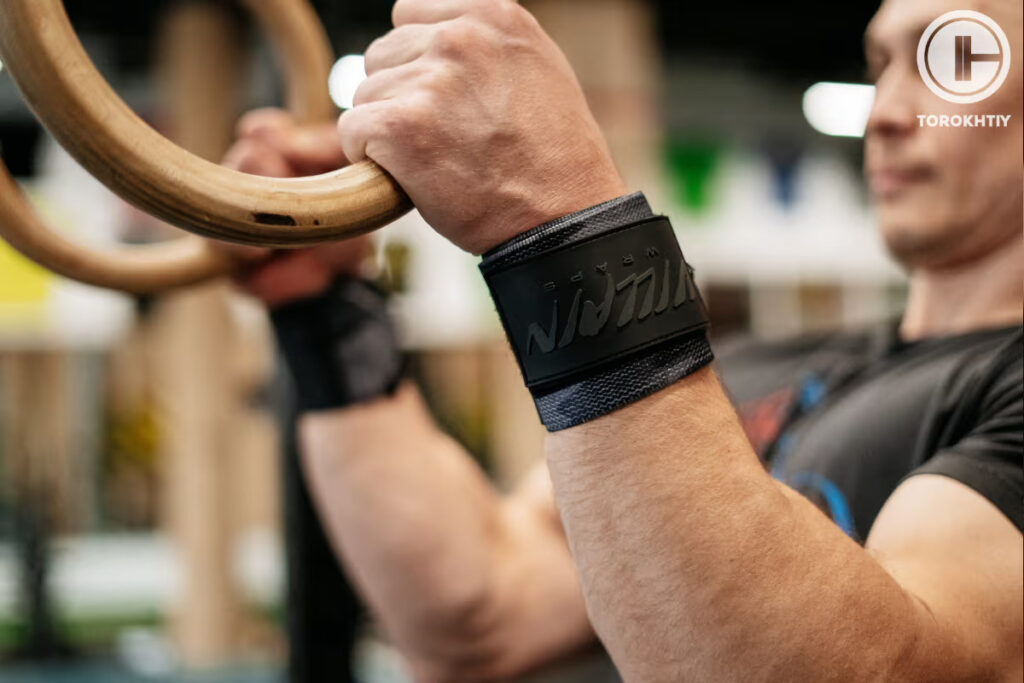
Pros and Cons of Wrist Wraps for Lifting
Now that you have your answer to the question “what do wrist wraps do?” and what they are, let’s check out the pros and cons of using them in training.
Positives:
Could be better:
What are Wrist Straps?
Wrist straps are lifting accessories looped around the wrist and then wrapped around the bar with the sole purpose of creating a “hook-like” grip for the lifter. The main idea of weightlifting wrist straps is to lower the grip strength requirements or simply improve the grip strength endurance.
Typically, they are used by athletes who have been training for a long time and can now lift more weight than their grip allows. That’s where wrist straps come in handy, as they allow lifters to continue working on their strength, even when their grip fails them.
When and Why Do You Need Wrist Straps?
Most weightlifters use wrist straps whenever they want to train heavy, typically close to their maximum. Often, in such situations, grip strength can become an issue, as experienced lifters can lift heavier weights than their grip allows them to.
In gyms, you will rarely see someone doing a heavy deadlift without using straps, and there’s a good reason for that – wrist straps eliminate the demand for grip strength and help lock the wrist to the bar. In addition, they eliminate the possibility of grip failure and enable lifters to do more reps.
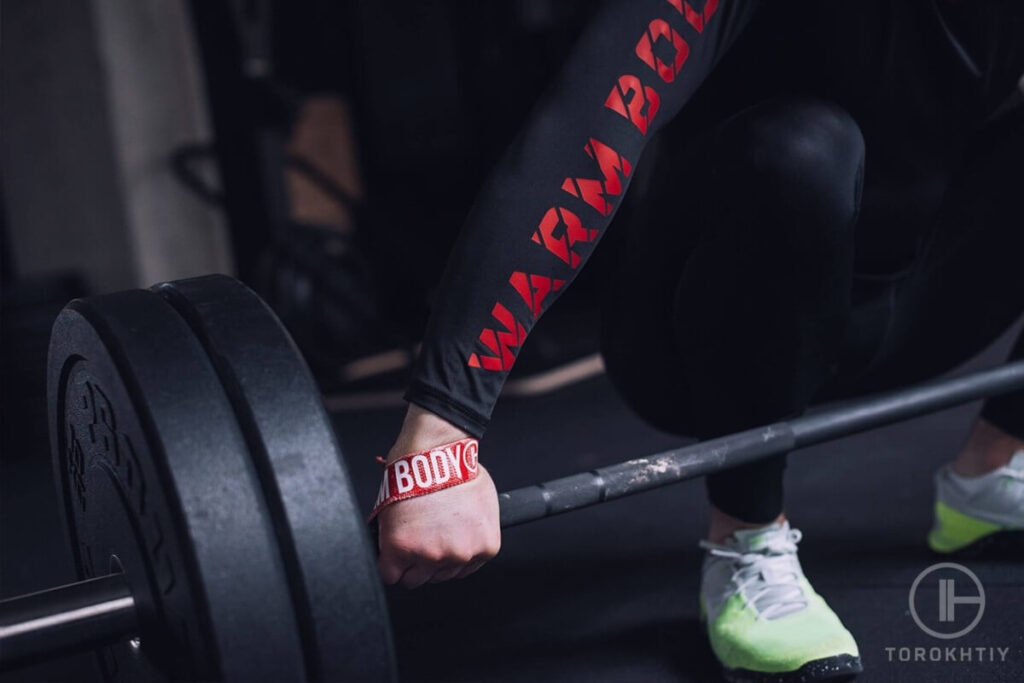
When and Why Do You Need Wrist Straps?
You already know what wrist straps are and why you often see people in gyms using them, so now you might be wondering what the pros and cons of including this accessory in your training program are. Let’s see.
Positives:
Could be better:
Top Rated Lifting Straps and Wrist Wraps
Now you might be wondering which pair you should buy and which ones are the best in the business. That’s why, in the next paragraph, we will present you with two high-quality, top-rated options for both wrist wraps and wrist straps so that you know what to buy if you decide to.
Warm Body Cold Mind Straps
When it comes to wrist straps, you want a comfortable, durable pair that can absorb your sweat during those long and strenuous lifting sessions.
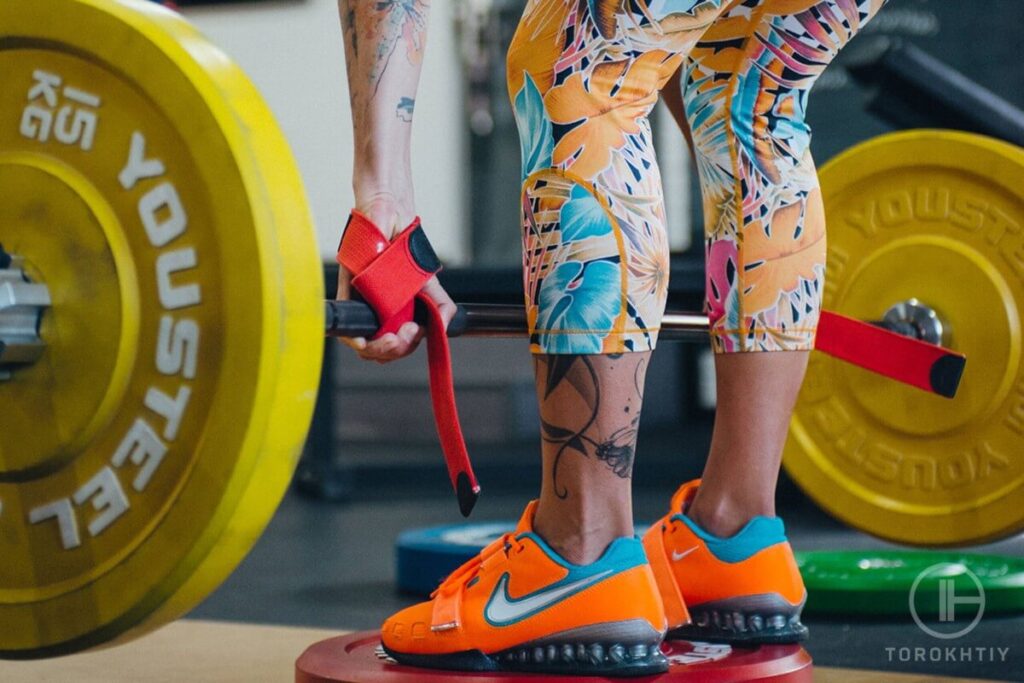
Well, we’ve tested out many pairs and have concluded that the ones from Warm Body Cold Mind are the best option when comparing both quality and price. These straps are made from cotton, which makes them quite sturdy and long-lasting.
Warm Body Cold Mind Premium Velcro Wrist Wraps
These wrist wraps from Warm Body Cold Mind are one of a kind. Like the straps, we’ve also put these wraps through a test and can confidently say that they’re perfect for those of you who do heavy lifting frequently and want to have more stability and support in the wrist.
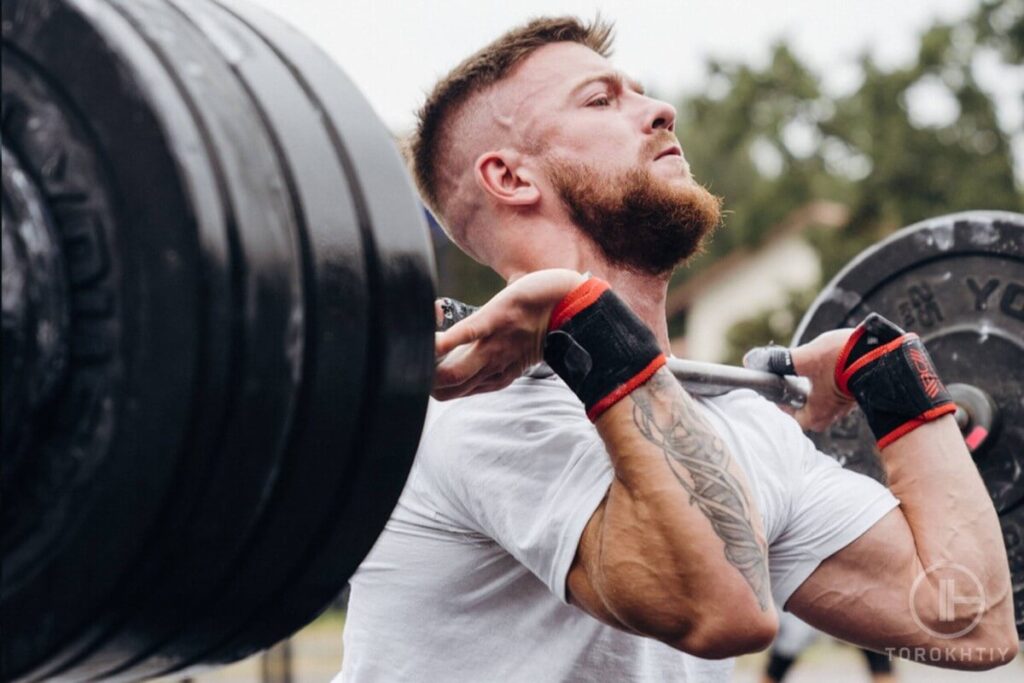
These wraps are made from velcro and so are incredibly strong and durable. This pair is a must-have for any athlete and is suitable for both training and competition days. Thanks to the quality materials they’re made of, one pair of these straps is likely to last you years.
FAQ
Can You Use Wrist Straps as Wrist Wraps?
No. These two accessories are made from different materials; they have completely distinct builds and serve their own purpose.
Do Wrist Wraps Help Wrist Pain?
Wrist wraps are not made to provide pain relief and should not be used for that purpose in case of any underlying (or not) injury.
Their whole idea is to give you additional support and stabilization so that you can prevent injuries from happening in the first place. If you’re dealing with wrist pain, you should contact your physician, so that the injury can get diagnosed and treated properly. Think of them as a support not a substitute.
Do Wrist Wraps Help Bench?
Many lifters believe they should wear wrist wraps for deadlift, bench, or overhead press as a way to increase results. However, that assumption is mostly false. Wrist wraps don’t make you stronger. Their purpose is to give additional support to the joint and prevent injuries and in some cases extra support and stability actually allow you to lift heavier weights – the strength tho needs to be there already.
Conclusion
Wrist straps and wrist wraps are two separate weightlifting accessories that serve two completely different purposes.
One (wrist wraps) helps prevent injuries and gives additional stabilization to the wrist joint, while the other (wrist straps) enables you to lift more weight if your grip strength is weaker than your overall strength and weightlifting ability. Straps are mainly used for pulling exercises and wraps should be mainly used on your push day.
With that said, let us ask you: Have you used any of these accessories, and do you believe they’ve helped you during your training sessions?
Also read:
- Best Figure 8 Lifting Straps
- Lifting Hooks vs Straps
- Lifting Grips vs Straps
- Leather vs Nylon vs Cotton Lifting Straps
- Figure 8 Straps Vs Normal Straps
- Straps For Pull Ups
- Put On Deadlift Straps
- Best Deadlift Straps
References:
- Advice From A Certified Hand Therapist: Exercising With(Out) Wrist Pain // American Society for Surgery of the Hand:
https://www.assh.org/handcare/blog/advice-from-a-certified-hand-therapist-exercising-without-wrist-pain/ - Protect Your Wrists From Injury // Health and Safety Unit of UC Santa Cruz
https://ehs.ucsc.edu/programs/ergo/wrist.html - All photos are made by our Torokhtiy Media Team
Why Trust Us?
With over 20 years in Olympic weightlifting, strength training, nutrition coaching, and general fitness our team does its best to provide the audience with ultimate support and meet the needs and requirements of advanced athletes and professional lifters, as well as people who strive to open new opportunities and develop their physical capabilities with us.
By trusting the recommendations of our certified experts in coaching, nutrition, and sports training programming, as well as scientific consultants, and physiotherapists, we provide you with thorough, well-considered, and scientifically proven content. All the information given in the articles concerning workout programming, separate exercises, and athletic performance, in general, is based on verified data.
The product testing process is described in more detail here.
Author: Oleksiy Torokhtiy
Olympic Weightlifting Champion
Best Results: Snatch – 200 kg,
C&J – 240 kg
Oleksiy Torokhtiy is a professional athlete boasting 20 years of experience in Olympic weightlifting. With multiple European and World titles under his belt, he has showcased his prowess in two Olympic Games (Beijing 2008 and London 2012). Upon concluding his illustrious career, Oleksiy dedicated himself to coaching. By 2022, he had conducted over 200 weightlifting seminars worldwide. He is the visionary behind an international sportswear and accessories brand known for its motto, “Warm Body Cold Mind.” Additionally, he is an esteemed author and the creator of a series of training programs and eBooks.

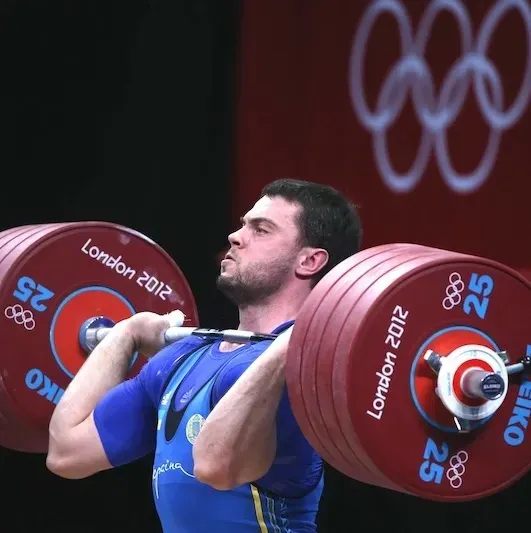

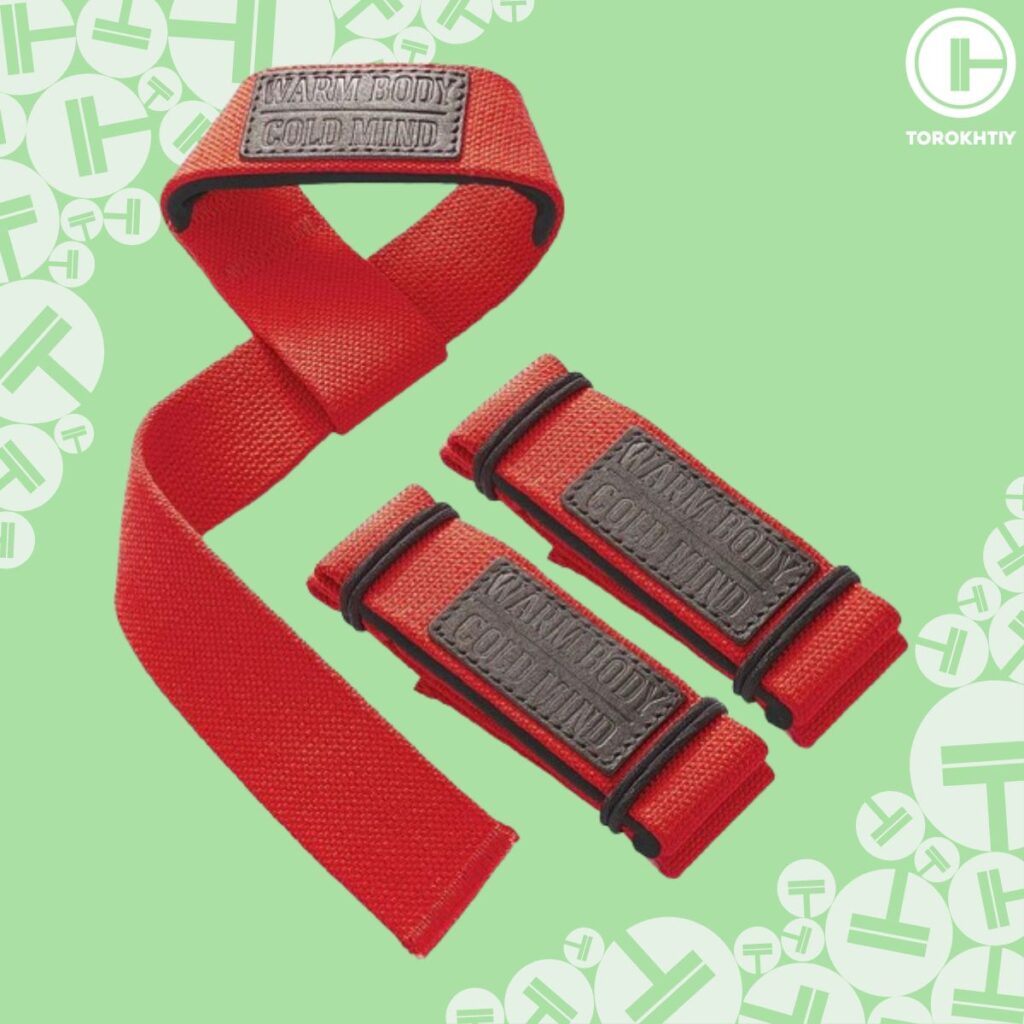
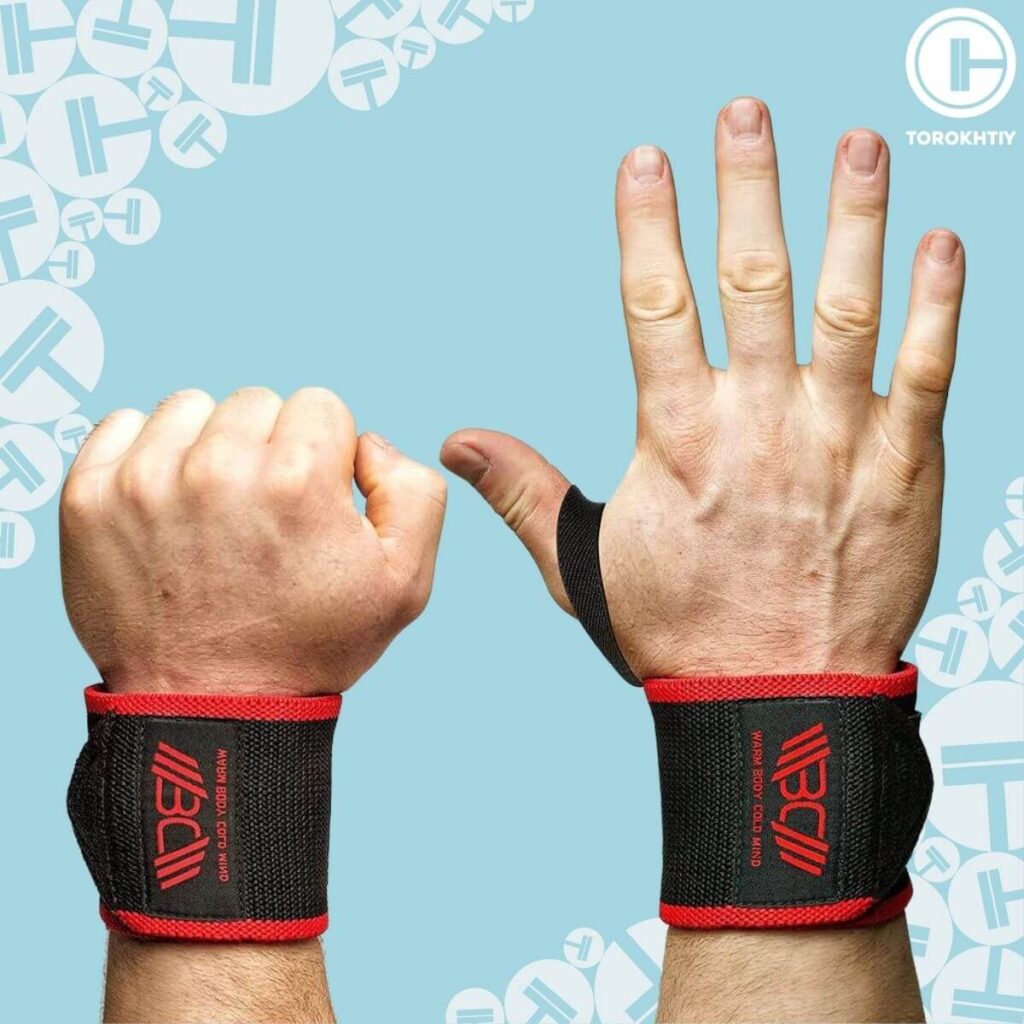
Still have questions after reading our article? Unlock your full potential by engaging with our experts and community! Don’t hesitate — leave a comment below and Oleksiy Torokhtiy will provide a personalized answer and insights to help you reach your goals.